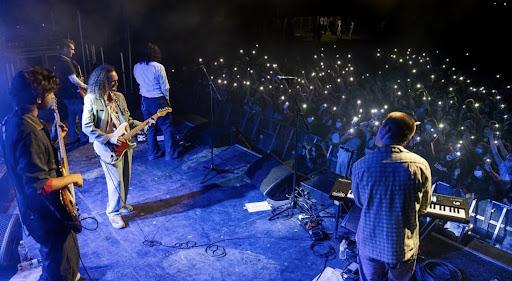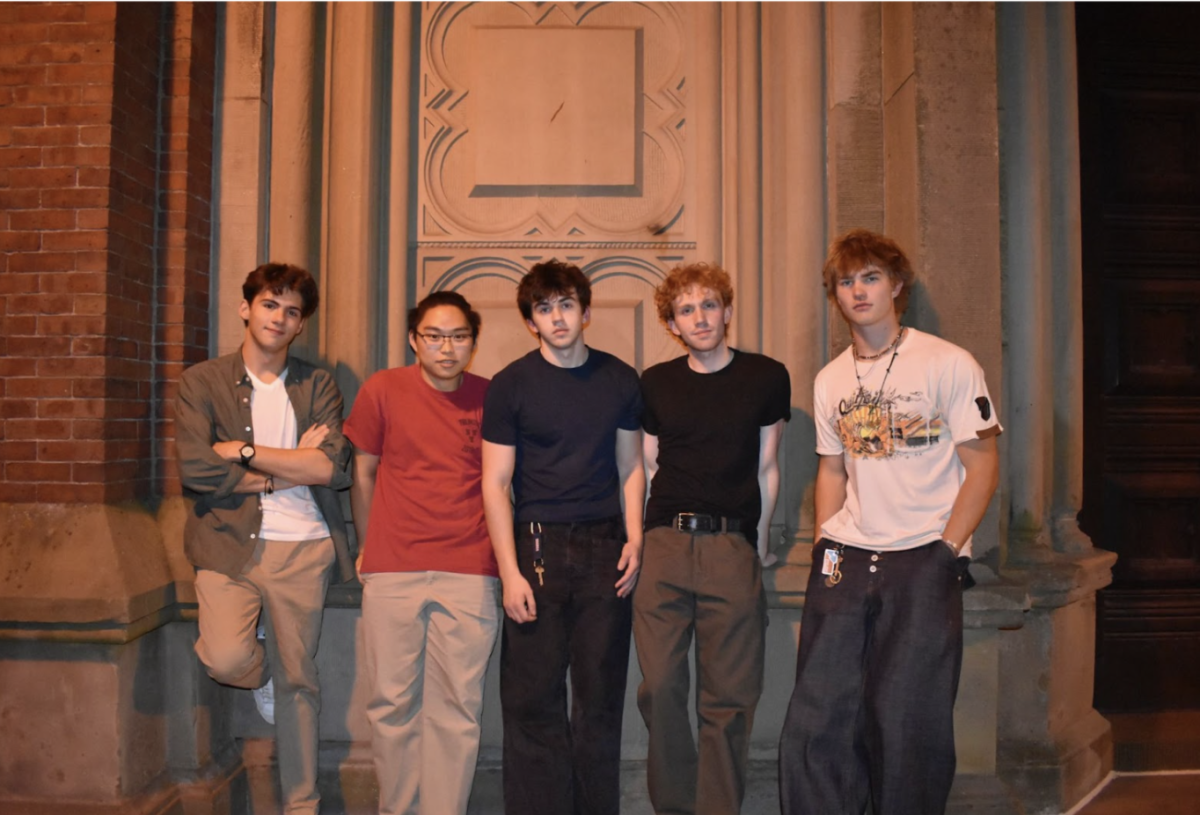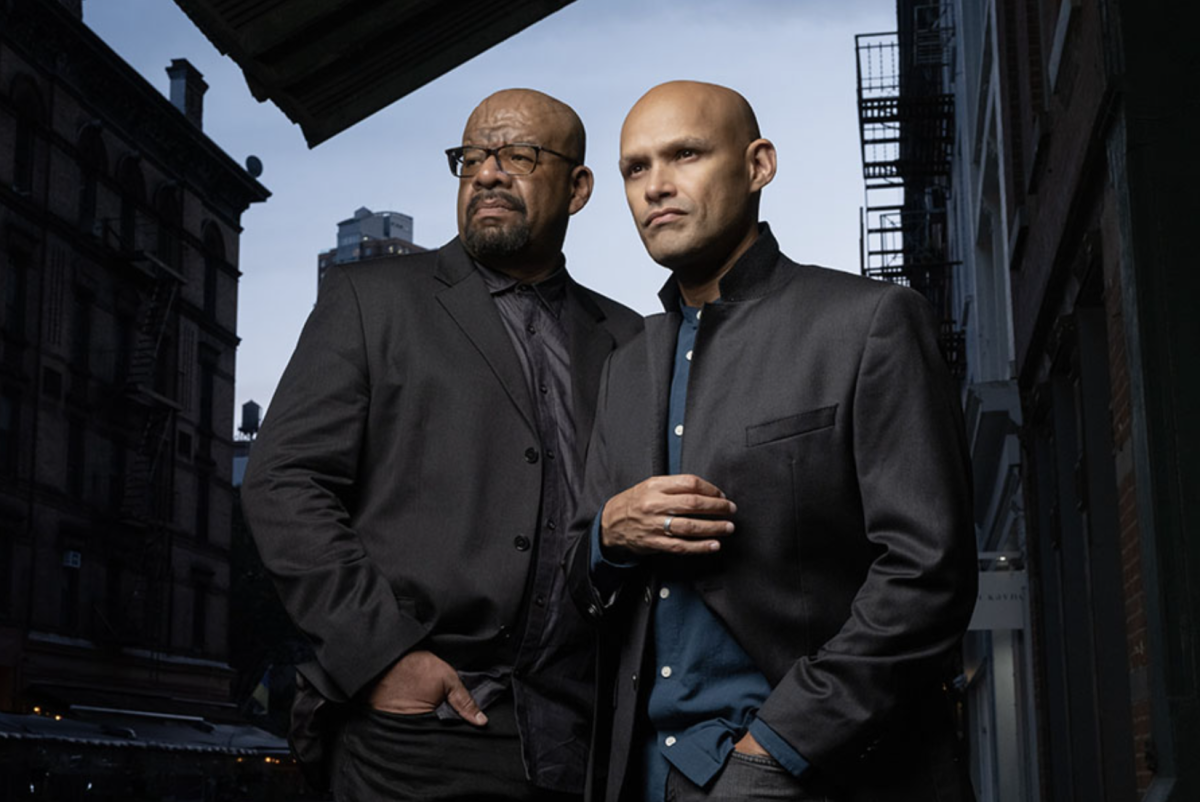In the days leading up to the Laundry Day concert, the consensus on campus was simple — “Who even is Laundry Day?” By 11 p.m. that Saturday evening, however, the conversation had decidedly changed. Fresh off the high of a live performance, Laundry Day was being added to playlists, followed on Instagram and tagged in blurry Instagram stories.
Three of the band’s five members met with me over Zoom on a rainy Tuesday afternoon from their respective rooms in New York.
As told by band member Jude Ciulla, Laundry Day’s origin story is the kind of kismet typically seen in Disney Channel Original movies. Five musically talented high school freshmen happened upon each other and started making music. “We were just friends and the music started to happen,” Ciulla says. He describes the band’s connection as “natural.” The band connected fast and became somewhat stratified from the rest of their community, with Ciulla remarking that he believes fellow members “couldn’t connect with anybody else.” Henry Pearl adds “I know these boys better than anyone I’ve ever known and that’s a really good feeling”.
Joined by their photographer, creative director — “god,” according to Henry Weingartner — Camilla Ffrench, they present as the kind of friend group teen dramas are built around, which is maybe the point. Laundry Day suffers no fools. They are fully aware that success isn’t possible on talent alone. They all view their job as not only musical but marketing. Pearl says that “marketing is just another place where we’re able to represent ourselves.” Although to the members of Laundry Day college is currently just another venue, Ciulla brought up to me that Mick Jagger went to business school (London School of Economics, specifically). They seem to be every manager’s dream — although Weingartner promised me that they still annoy their manager.
But in some ways, the members of Laundry Day still seem like teenagers. Despite the maturity in their ambition, Laundry Day still has an aura of Wham! Make it Big (but don’t call them a boy band). Pearl emphasizes that “the idea of being able to stop going to school was one of many driving factors of our work ethic while we were in high school.” He says that “we can leave all this behind and focus on what we love,” proving that you don’t need to live in dodge to want to get the hell out. They might be working towards a Grammy and an appearance on SNL, but they still have the authenticity of a group of kids dreaming of living forever.
When asked about how they liked Wellesley the band seemed genuinely excited. Pearl gushed that “the amount of acceptance and excitement was not comparable to anything we’d seen in years.” It was something about playing in front of people who were their age. They all promised that performing at Wellesley was exactly the kind of gig they wanted to be doing right now. Weingartner even said “We wanted to play Wellesley again.”
Laundry Day has worked hard to make themselves synonymous with the city they call home. Ciulla says that they want to be “the band of this decade when you think of New York.” In the great New York tradition of Fran Lebowitz, they’ve turned up their noses at LA citing New York as their power source with Pearl saying “we could run dry without it.” They’re crafting the modern New York art scene but, as Pearl says, “the scene exists online.”
They seem wistful about their connection to the internet. While they made it abundantly clear that they’re grateful for the way the internet has connected them to fans and helped further their careers, they expressed a distaste for the isolation and limitations the internet affords. Pearl describes a nostalgia for the punk scene of the 80s and 90s (not surprising to anyone who’s seen his mullet or the iconography dangling from his ears). All of them express a raw desire to be out in the world and meeting people. It’s not hard to romanticize vying for a bad slot at CBGB or being photographed by Bill Cunningham while chatting up Diane von Fürstenberg at Mudd Club.
Although the internet can seem to squash the spontaneity that art requires, the story of “Jane,” the song that launched a thousand playlists, proves that cinematic moments are still possible. Ciulla told the story of the time they met a woman on the subway named Jane in the band’s infancy. She asked them about their band and looked them up on Spotify. Her kindness and the musicality of her name stuck with the band.
What’s next for Laundry Day? They still have so much more to do and, like most artists, they probably will never be satisfied. So maybe some more college concerts, one day a Grammy or even a song called Wellesley.




